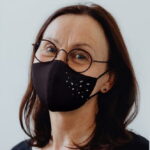
7 Ways To Take Care Of Your Respiratory Health
It is often said that humans can often go weeks without food and even days without water, but mere minutes without oxygen. However we often take ” breathing” for granted, more so than eating or drinking.
What Does It Mean To Have A Good Respiratory Health?

Having a good and healthy respiratory system is vital to your overall wellness. If you can’t breathe properly, you cannot live well. A good respiratory system simply means the absence of lung diseases and respiratory infections. Most people generally think respiratory system is breathing, but that’s just one function of the system. The respiratory system works with the circulatory system to supply the oxygen needed for metabolism and eliminate metabolic waste.

Respiratory Diseases And Disorders
There are two types of respiratory diseases and disorders: Infectious and Chronic.
The 4 common types of respiratory infections are COVID-19, the flu, pneumococcal disease, and colds.

Common chronic respiratory disease includes asthma, lung cancer, chronic obstructive pulmonary disease (COPD), obstructive sleep apnea, chronic bronchitis and pneumonia
Number of People Living With Respiratory Diseases
According to the American Lung Association nearly 37 million Americans live with a chronic lung disease like asthma and COPD, which includes emphysema and chronic bronchitis. And according to the The Asthma and Respiratory Foundation NZ:
- Respiratory disease is New Zealand’s third most common cause of death.
- One in six (over 700,000) New Zealanders live with a respiratory condition, and these rates are worsening.
It is therefore of utmost importance to take care of your respiratory health.
Common Causes Of Respiratory Diseases
Several types of respiratory disorders can be identified based on their underlying causes. Read on as we look at the most common categories.

Doctors classify lung disease as either obstructive or restrictive. Obstructive lung diseases cause narrowing of the airways with increased airway resistance, which makes it harder to breathe. Obstructive lung diseases can be triggered acutely, for example, by allergies in people with allergic asthma (triggers include pollen, particulate matter, mold, or certain medicines). Chronic conditions in this category include COPD, which is almost always caused by many years of smoking (cigarettes or e-cigarettes, for example).

Restrictive lung diseases, on the other hand, prevent the lungs from expanding fully, which hampers gas exchange in the alveoli. Mechanical problems, such as a broken rib, or damage to the nerves that coordinate the muscles of respiration can both lead to restrictive lung disease.
While some lung diseases are hereditary and restrictive, which allow us only to manage it. Some are totally preventable. Here are some ways how:
How You Can Keep Your Lungs Healthy
1.Avoid Smoking and /or Second Hand Smoke

According to the CDC Cigarette smoking causes up to 90% of all lung cancer cases and 40% of all cancers in the U.S Second-hand smoke is dangerous, too. Breathing in toxic fumes constantly from air pollution can damage your airways and those small air sacs in your lungs.
2. Ensure The Air Quality In Your Home, School and Work Environment Is Healthy

Air pollution, chemical fumes, dusts and secondhand smoke are lung irritants that contribute to COPD. Sometimes your indoor air can be worst than the outdoors.
Keep the air inside your home clean. Here’s how:
- Don’t let anyone smoke in your home or car.
- Use an air purifier with a HEPA filter.
- If you work around asbestos, wear the right mask.
- Test your home for radon (an invisible gas that can cause lung cancer).
3. Practicing proper personal hygiene is important

- Wash your hands often
- Stay away from crowds during cold and flu season
- Brush your teeth twice daily. This can help prevent infections in your mouth which can be caused by germs)
- Wear a good quality protective face mask
not only for yourself but also for the people around you. Even when masks are no longer mandatory does not mean that airborne viruses will go away. According to the Mayo Clinic in the US, respiratory illnesses are on the rise with symptoms similar to Covid19 and especially during the cold winter seasons. This is true in other parts of the world too. With the continuous spread of the airborne virus, it’s important to stay vigilant and protect ourselves

4. Keep Your Body Strong And Healthy

Good nutrition and supplementing it with vitamin pills (like Multi-vitamin, Vitamin D, Omega3) can help you fortify yourself, fight off germs and help with your respiratory system. Aim to fill your plate with:
- Fresh fruits (such as berries, apples, oranges, bananas)
- Fresh vegetables (such as red and green peppers, carrots, leafy greens, tomatoes)
- Fiber-rich foods (such as whole grain bread, nuts and seeds)
- Lean proteins (such as chicken, legumes, fish and shellfish, turkey, eggs)
- Healthy fats (such as olive oil, avocado)
5. Staying Active With Regular Exercise

Staying active makes your lungs (and your heart) stronger. Exercise can also strengthen the muscles that help your lungs expand,
You should aim for at least 150 minutes of moderate physical activity every week. A good goal: Try to get 30 minutes on most days. Walking is a great place to start.
6. Practice Deep Breathing or Incorporate BreathWorks Into Your Daily Routine

Deep Breathing can help you feel calm and relaxed It might also help exercise the muscles involved in breathing.
Pursed Lips breathing are breathing exercises recommended by the American Lung Association that you can do in between working at home. This routine trains your body to control the air coming in and out of your lungs. Do this exercise by simply breathing in through your nose, then breathe out twice as long through your mouth while keeping your lips pursed.
Another breathing exercise recommended by the John Hopkins University for people who contracted the coronavirus is a deep breathing routine while lying on your back. Simply lie on your back and bend your knees without your feet touching your buttocks. Place your hands on top of your stomach and close your lips, then place your tongue on the roof of your mouth. Now breathe in through your nose and gently pull down into your stomach using your hands. Exhale through your nose with control. Repeat the exercise for at least a minute.
Breathwork refers to any type of breathing exercises or techniques. People often perform them to improve mental, physical, and spiritual well-being. During breathwork you intentionally change your breathing pattern.
There are many forms of breathwork therapy that involve breathing in a conscious and systematic way. Many people find breathwork promotes deep relaxation or leaves them feeling energized.
7. Keep Up With Your Yearly Health CheckUps /Get Yourself Vaccinated
See your doctor regularly to catch any lung problems early. Some lung issues, such as lung cancer, can have no symptoms until they’re serious.

Protecting Yourselves
Protecting your lungs from airborne elements that could trigger respiratory diseases like Asthma and bronchitis is therefore vital. Natural allergens, smog, toxic chemicals, and cold weather may still trigger these respiratory illnesses and cause respiratory infections. That’s why, if you are in an area with a high concentration of fumes, dust, other air pollutants or if you are allergic to them, you should consider protecting your lungs by wearing a high-quality protective face mask with good quality filters
With the need to stay safe, it is unsurprising that BreatheEasierMask offers one of the best mask for comfortable breathing. The breathable double filter mask provides a high 95% Bacterial Filteration Efficiency as protection while making breathing easy. While putting on a mask lowers the odd of getting infected, there are other factors involved as laid out above for you to be aware of in taking care of your respiratory health.

